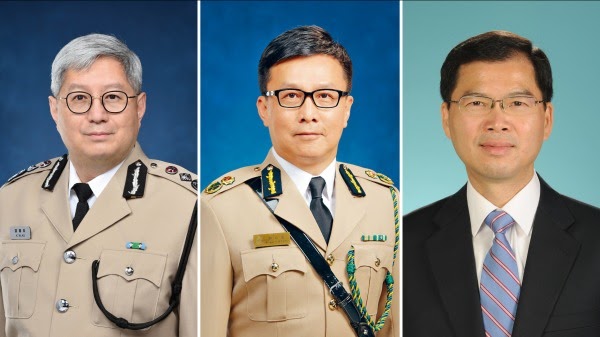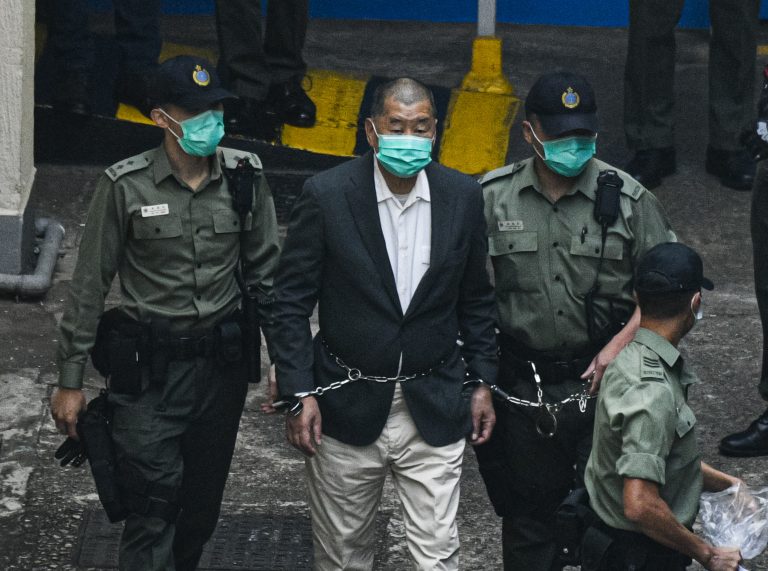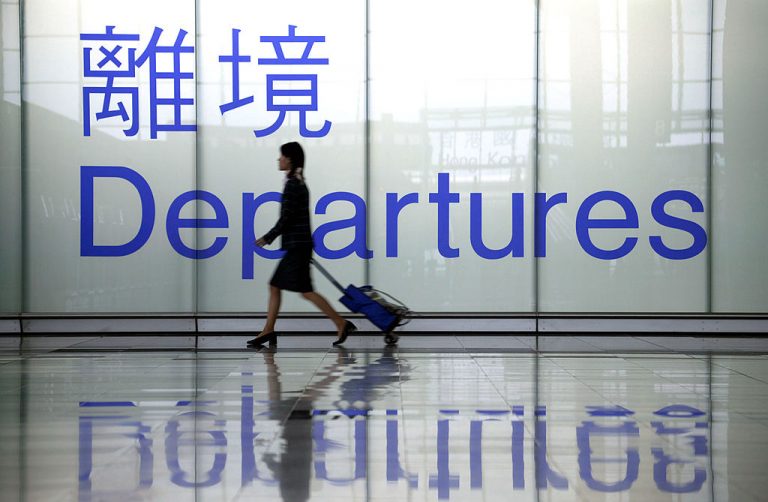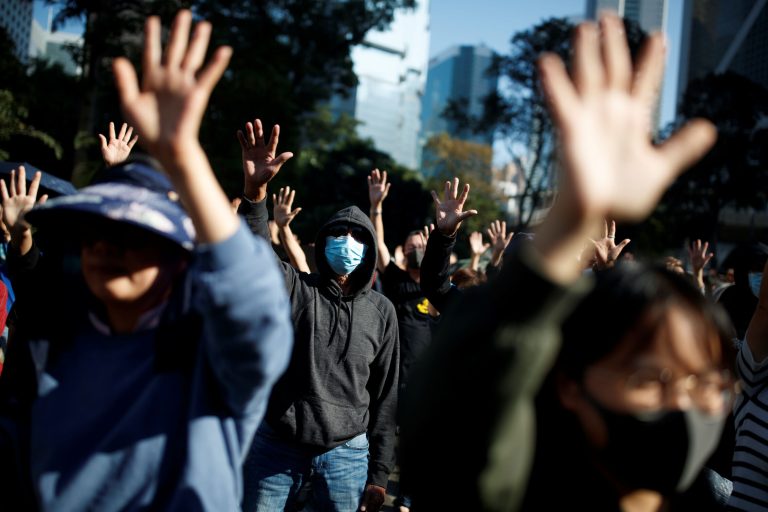On July 13, various media reported that three senior Hong Kong security officials and members of Hong Kong’s National Security Council had attended a luxurious dinner party held by the mainland real estate company Evergrande in March, violating the strict standards set for the city’s public officers.
According to reports by local media, it was found that Director of Immigration Au Ka-hung, Customs Commissioner Tang Yee-hoi and Deputy Secretary for Security Au Chi-kwong attended Evergrande’s luxurious dinner party on March 2, spending the equivalent of nearly US$400 per person, without counting the cost of liquor and wine.
Besides violating the public health restrictions on gathering, Chen Fan, a senior executive of Evergrande, was arrested that night for the alleged rape of a woman who attended the dinner party. The Hong Kong community was shocked by the presence of security officials with criminals, but the Hong Kong government tried to play down the major scandal.
The case only came to public light after the police investigated the rape alleged to have taken place after Chen Fan took the woman home following the party.
Police did not disclose any details of the case to the public, only writing in a press release that nine people attended the dinner party. The identity of the other five people at the dinner party remains a mystery, as does the matter of who hosted the dinner and who paid the bill.
‘Auspicious Club’
Success
You are now signed up for our newsletter
Success
Check your email to complete sign up
The venue involved belongs to “Auspicious Club,” one of the most prestigious gentlemen’s clubs in Hong Kong with members from business, political, and celebrity circles. Situated in Wanchai, the core downtown of Hong Kong, the club is divided into two parts: the “Cigar Club” and the “Sui Yuan Hui”, with extravagant decor and an extreme degree of privacy.
According to online media Stand News, the “Sui Yuan Hui” focuses on “creating a high-end, secret social platform for top circles” and has operations in more than a dozen Asian cities. Its director, Miao Xianrui, is the chairman and majority shareholder of Shanghai Miao Enterprise Group and holds a passport from a Central American country.
According to the membership handbook, there are three levels of membership: “Gold”, “Platinum” and “Black Gold”, all priced in US dollars starting from US$200,000 to US$1,000,000.
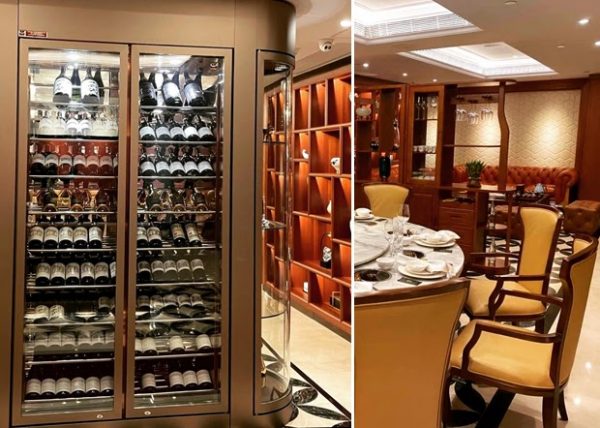
Hong Kong civil servants are subject to strict requirements for accepting benefits or hospitality according to the Basic Law, and that might otherwise involve misconduct in public office and court trials. However, the government has been downplaying the scandal involving Hong Kong’s security system for days.
Officials ‘need not be further investigated’
Responding to a press inquiry on July 12, Chief Executive Carrie Lam said that public officials should be “whiter than white,” but said that the three senior officials may not know that the dinner was luxurious when invited and could not have “got up and left when they saw a piece of abalone.”
Carrie Lam also said the three officials have been “punished” and bore the cost outside the law. She, Chief Secretary for Administration Lee Ka-chiu and Secretary for Security Tang Ping-keung “know them well” and “agreed that the officials did not intentionally break the rules and need not be further investigated.”
It’s not the only recent scandal involving Hong Kong’s security apparatus. This March, the Hong Kong Police Commissioner of National Security Choi Chin Pang patronized an unlicensed massage parlor involved with prostitution in a case also exposed by the media.
Hong Kong Citizen News analyzed the time frame of the incidents and commented that the incidents reflect the intense power struggle within the security system of Hong Kong as Secretary for Security Lee Ka-chiu, a police officer, was promoted to Chief Secretary for Administration on June 25.
The article analyzed that the most affected by the incident of Choi Chin Pang’s involvement in prostitution is the senior police officers led by Tang Ping Keung, who was Commissioner of Police at the time.
The time of the revelation came in mid-May, a sensitive moment when Beijing and the senior management of Hong Kong considers candidates for the next Chief Secretary for Administration. However, the fact that Tang was nevertheless promoted to the post of Secretary for Security means that his political backing is very solid.
Political jostling
As for the dinner party incident, the two major disciplinary forces — the head of the Immigration Department and the Customs and Excise Department — are the hardest hit.
In the past, the former Director of Immigration has been promoted to a higher political level, and the Director of Customs and Excise, Tang Yi-hai, is reported to be the successor of the Commissioner of the Independent Commission Against Corruption (ICAC). However, the two involved Au Ka-hung and Tang Yee-hoi now have their political future tainted. “If anyone in the security system would be happy about this, I believe it would be someone from the police force,” the article said.
In June, the Beijing government made a major personnel transfer, with former Deputy Commissioner of Police Li Ka-chiu promoted to the Chief Secretary and Commissioner of Police Tang Ping-keung taking over the Security Bureau, which the article described as “establishing a political pattern in the security system dominated by police officers.”
The article also pointed out that there are different factions in the Hong Kong security system, as the police faction and the non-police factions “always wrestle with each other for more power and dominance.” For example, the police and the ICAC are often at odds because the latter is responsible for investigating corruption; similarly, the police and the Immigration Department are in competition for political appointments and more authority.



